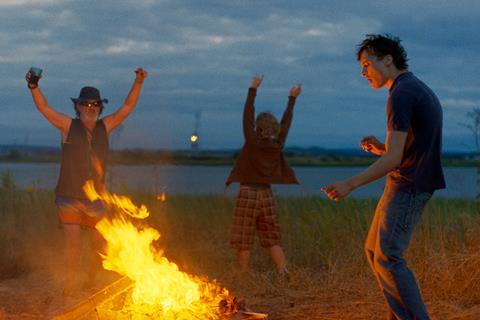
This Cannes is a special one for BFI Filmmaking Fund director Mia Bays, as she is now over two-thirds through her five-year tenure, and the results from the sweeping changes she has put in place at the fund are coming to fruition. Three of the first films to be backed by the Discovery Fund — a production fund tailored towards supporting directorial debuts budgeted below £3.5m ($4.6m) that was introduced in April 2023 — are playing in Un Certain Regard at Cannes: Akinola Davies Jr’s My Father’s Shadow, Harris Dickinson’s Urchin and Harry Lighton’s Pillion.
“We’re proud of the role we play in launching careers and sustaining careers,” says Bays. “Seeing Molly Manning Walker [director of BFI-backed debut How To Have Sex] head the [Un Certain Regard] jury — it’s wonderful.”
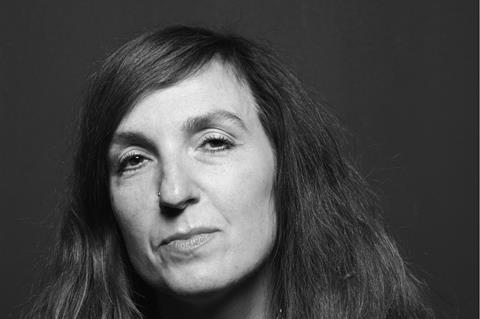
But with 18 months left in post, there is little time for Bays to sit back and bask, and still much that she is determined to achieve. The Filmmaking Fund is developing its next production and development funding plan for 2026-29. Bays confirms the structure is likely to remain broadly similar, although the budget for the next three years may be subject to change. The current fund has £29.4m ($39.1m) in National Lottery backing from 2023‑26 across the Discovery Fund and the Impact Fund (aimed at debut projects budgeted over £3.5m/$4.6m or second time and beyond filmmakers); £4.5m ($6m) to support 60-70 development projects per year; and a £2.7m ($3.6m) Creative Challenge Fund for decentralised development labs.
Bays says one key area of focus is making sure the fund is “agile” enough to support a range of wellbeing and access needs. BFI has recently supported two films through the Discovery Fund that are understood to be among the first narrative features to be written and directed by deaf filmmakers, also centring on deaf and hearing characters.
Louise Stern’s A Hand Rises recently wrapped and focuses on a death that ruptures a close-knit deaf community. Stern was raised in a deaf community, and the film has a predominantly non-hearing cast; Helen Simmons and Manon Ardisson produce and BBC Film co-finances. Ted Evans’ thriller Retreat, which is also BFI and BBC Film-backed, shot at the end of last year, with an all-deaf cast.
“It is developing a new screen language, in a way, that hasn’t been seen before. The approach, production-wise, required a lot of investment and structure,” says Bays. “Retreat informed what happened on A Hand Rises. It’s helpful to build that community engagement.”
Promised improvements to the ‘locked box’ recoupment scheme were parked owing to the focus on bringing in the Independent Film Tax Credit (IFTC), but Bays is looking to revisit that before the end of her tenure in autumn 2026.
Some form of high-budget short films offer akin to the Future Takes programme, which co-financed shorts budgeted between £55,000 and £90,000 ($73,000 and $120,000) with Film4, will return but, says Bays, “It’s not fully set up yet in terms of partnerships and renewals.”
Team building
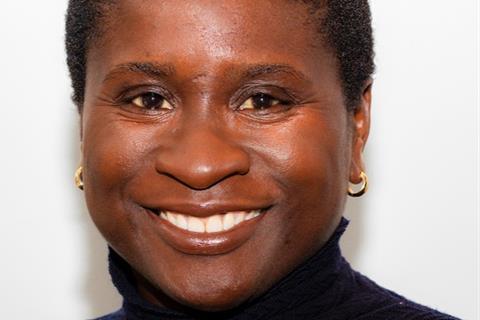
The past few years have seen a change of guard at the fund, which has a team of 19, including three BFI Network executives. Senior production and development execs Louise Ortega and Ama Ampadu started in 2022 and 2023 respectively, reporting to Bays and leading on the development and production funds, assessing applications, recommending funding decisions and providing hands-on creative support. Ortega has an executive producer credit on Pillion and Cannes Great 8 title Animol, while Ampadu is executive producer on My Father’s Shadow and Urchin.
Vicki Brown joined in 2023 in a newly created role of senior executive for sales and distribution, to help ensure the long-term success of films the BFI backs, working with producers to identify the right sales agents and distributors for their projects, approving deals and helping strategise a film’s international rollout. Current BFI titles attract both UK and international sales agents.
“It’s encouraging that there are so many international sales agents that are interested in UK titles. It shows what a fantastic home we have for new talent,” says Brown.
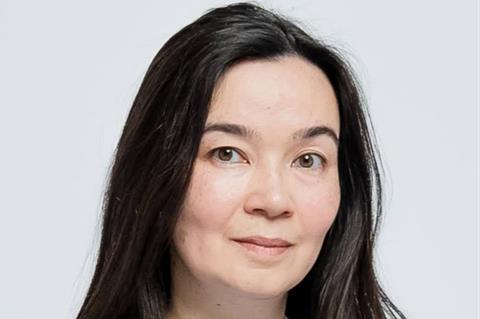
The fund is currently not using AI to assess applications, and Bays does not see that changing anytime soon. She accepts it is now a tool that filmmakers and producers will use when applying to the fund. “It’s not marked against you,” says Bays. However, the fund does ask any use of AI to be declared with applications. “We’re seeing it in things like promo reels, and vision reels and mood boards,” adds Bays.
Projects are read and assessed by a minimum of three members of the team. The audience fund, headed up by Ben Luxford, sits in on team reads for applications at the final stage, which is particularly pertinent for the bigger investments that surpass the £500,000 ($660,000) mark.
“Every single time, it’s about the strength of the project, the justification of need — lottery money has to be identified with market failure,” says Bays. “That doesn’t mean to say the market isn’t interested, but we have to see there is a gap that perhaps you can’t fill in another way.”
The biggest production award since the BFI Filmmaking Fund was relaunched in 2023 is Bait and Enys Men filmmaker Mark Jenkin’s Rose Of Nevada, a time-travel mystery shot in Cornwall starring George MacKay and Callum Turner that was developed and co-financed with Film4, with the BFI investing £1.3m ($1.7m). “[Mark] is stepping up into a big-budget space, with a much bigger cast,” says Bays. “It’s creative risk-taking, with market interest, but without obvious [financing] options.”
Qualitative success
While some European funds are starting to use commercial success as a benchmark for future investment, Bays maintains that commerciality is just one part of their consideration. “Box office and audience impact, especially in the Impact Fund, is always something we assess,” she says. “We do our own internal reviews of how our films have done. But commercial success is only one measure; cultural impact is another.”
That criterion may be harder to define, she says, but it can be identified “through awards and how much a film has travelled”.
Ortega observes that, following last year’s introduction of the IFTC (40% relief for films with qualifying spend under £15m/$20m), there has been a shift in the kinds of applications coming through. “We’ve seen an uptick in ambition and scale, which is great to see,” says Ortega.
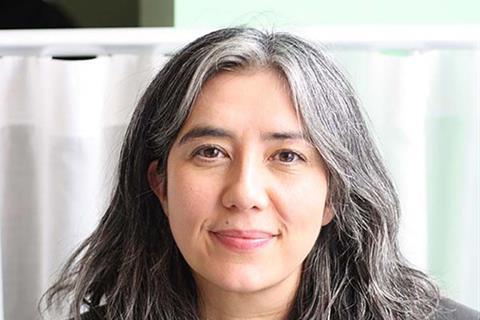
However, the BFI’s limited funding remains a challenge. For 2023‑24, just 16% of development funding applications received backing; 6% of Discovery applications; and just 4% from Impact. “We need more money,” says Ampadu. “It is very difficult to turn down projects. There’s so much great British talent. If we had more, we’d be able to do more.”
UK producers often lament the lack of feedback from the BFI when an application is turned down. “In terms of transparency, in terms of who makes the decision and how, we did that work when we launched the new strategy and the new fund configuration,” says Bays.
The fund previously offered feedback on a limited, bespoke basis for some projects when declining funding. However, when the new strategy was set in 2023, a decision was made to uniformly stop all notes on individual projects. As well as team capacity, explains Bays, “We’re not a distributor. We’re not a sales agent who can give a readout of the kind of commercial reasons [to not back a project] — that’s where you know you can go for feedback.
“We [the team] have a real plurality of voices; we’re very thorough,” she assures. “Everything gets looked at the same; everyone is treated the same. People try to have an advantage, because we might have made a film with them before, but we’re careful to have boundaries. I’m proud of that. But we have to make a decision.”
BFI Filmmaking Fund diversity and inclusion targets: how the fund is doing
% taken from average of the writer, director, producer
April 24-March 25 Production (Discovery and Impact)
Black and Global Majority [London and the South East]: 35% (target 40%)
Black and Global Majority [outside London]: 24% (target 30%)
Disabled: 32% (target 18%)
Female (gender binary): 31% (target 50%)
Sexual identity (other than heterosexual): 24% (target 10%)
Working class: 21% (target 39%)
April 24-March 25 Development
Black and Global Majority [London and the South East]: 58% (target 40%)
Black and Global Majority [outside London]: 34% (target 30%)
Disabled: 26% (target 18%)
Female (gender binary): 58% (target 50%)
Sexual identity (other than heterosexual): 35% (target 10%)
Working class: 34% (target 39%)
April 24-March 25 UK-wide stats
Development filmmaking teams from outside London and the SE: 49% (target: 60%)
Discovery filmmaking teams from outside London and the SE: 27% (target: 60%)
Impact filmmaking teams from outside London and the SE: 100% (target: 60%)
Discovery productions based outside London and the SE: 63% (target: 55%)
Impact production based outside London and the SE: 67% (target: 55%)

























No comments yet